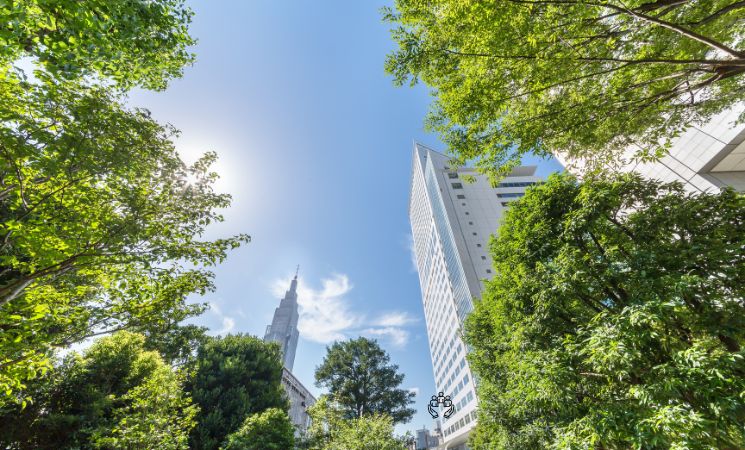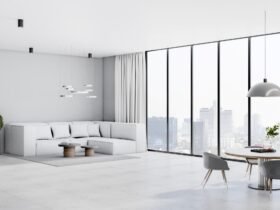The evolution of urban spaces has led to a significant shift in approaches to landscaping. The increasing densification of cities has fostered a need for innovative solutions that can transform grey urban landscapes into vibrant, green sanctuaries. One such innovative leap forward in the realm of urban landscaping is the introduction of VersiScape, a technology designed to revolutionize the industry and improve urban environments.
Understanding the Concept Behind VersiScape
VersiScape embodies a modern approach to vertical gardening, employing effective systems to create lush green walls that can be integrated into urban infrastructure. The concept hinges on maximizing limited space, enhancing biodiversity, and improving air quality within city boundaries. With the challenges posed by climate change and urban sprawl, VersiScape provides a path towards creating more sustainable and liveable urban spaces.
The Aesthetic and Environmental Benefits of Vertical Gardens
Vertical gardens offer significant aesthetic and environmental advantages. Visually, they can transform stark concrete facades into eye-catching features that enrich the urban landscape. Environmentally, they contribute by insulating buildings, lowering urban temperatures, and providing habitats for wildlife. The VersiScape system enhances these benefits, enabling the creation of green walls that can thrive in the challenging urban environment.
Flexible Design Solutions for Urban Challenges
One of the essential aspects of VersiScape is its flexibility. The system is designed to accommodate a vast variety of plant species, which allows for customisation according to the specific microclimate of the installation site. Additionally, VersiScape can be fitted to both new constructions and existing buildings, making it a versatile option for urban renewal projects and green retrofitting initiatives.
Enhancing Urban Living Through Biodiversity
The introduction of green spaces through VersiScape contributes to enhancing urban biodiversity. By creating habitats for pollinators and other wildlife, vertical gardens can serve as crucial stepping stones in conserving urban ecosystems. Not only does this support local fauna, but it also has the potential to increase residents’ wellbeing by bringing nature closer to their everyday lives.
Addressing the Urban Heat Island Effect
One of the most significant urban challenges is the Urban Heat Island effect, where concrete and asphalt surfaces absorb and re-emit heat, leading to higher temperatures in cities compared to surrounding rural areas. VersiScape systems aid in mitigating this effect by providing natural cooling through the process of transpiration, thus contributing to the creation of a more temperate urban climate.
Sound Absorption and Improved Air Quality
Another notable benefit of implementing VersiScape systems in urban landscaping is their capacity for sound absorption. Dense foliage can buffer noise pollution, creating quieter and more tranquil urban spaces. Furthermore, the plants used in VersiScape green walls actively filter pollutants, leading to improved air quality and contributing positively to public health.
Tackling Water Management in Urban Landscaping
Efficient water management is crucial in sustainable landscaping. VersiScape integrates smart irrigation systems that not only reduce water consumption but also ensure that plants receive optimal hydration. This is particularly important in urban areas where water resources can be limited and must be efficiently utilised.
Community and Social Value of Green Spaces
Social cohesion is an increasingly important aspect of urban development. Green spaces created with the VersiScape system can serve as communal areas where residents gather, socialize, and connect with nature. These interactions foster community spirit and can have profound effects on the social fabric of urban neighbourhoods.
Promoting Mental Health and Wellbeing
Green spaces are known to have a positive effect on mental health. The inclusion of vertical gardens in the urban landscape can provide an aesthetic appeal that uplifts residents’ moods and contributes to general wellbeing. The VersiScape system enables the widespread installation of these green spaces, addressing the need for calming natural elements in the often stressful urban milieu.
Economic Advantages of Urban Landscaping with VersiScape
In addition to the environmental and social benefits, there are economic advantages to incorporating VersiScape into urban landscapes. Green walls can increase a property’s value and marketability by enhancing its outward appearance. Furthermore, the insulation provided by VersiScape systems can lead to energy savings, reducing heating and cooling costs for building owners and tenants.
Creative Uses of Space with VersiScape
Creativity in urban design is paramount, and VersiScape allows architects and planners to reimagine how they can utilise space. With VersiScape, areas previously considered unsuitable for greening, such as narrow alleys or barren walls, can now become vibrant features. These creative applications speak to the adaptability and innovativeness of the VersiScape system.
Long-Term Sustainability and Maintenance
Any urban landscaping solution must be sustainable in the long term, and VersiScape addresses this need through durable materials and a design that accommodates easy maintenance. This enduring design ensures that the environmental and social benefits of the installed green walls persist over time without imposing significant upkeep challenges.
Conclusion
Urban landscaping is undergoing a renaissance, with technologies such as VersiScape leading the charge towards greener, more sustainable cities. Integrating biodiversity, improving the urban climate, and enhancing social well-being, VersiScape is not just a product but a comprehensive approach to rethinking how we interact with our urban environments. Through its innovative design and myriad benefits, VersiScape is setting a new standard for urban landscaping, paving the way for healthier and more aesthetically fulfilling cities that future generations can enjoy.













